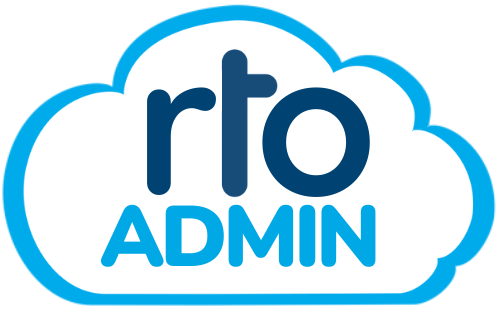Delving into the world of education technology, “Understanding What a Student Management System (SMS) Is,” uncovers the essential role of these systems in revolutionizing administrative tasks for Registered Training Organizations (RTOs). Imagine a digital assistant that not only simplifies course enrollment, attendance tracking, and grade recording but also ensures compliance with stringent ASQA regulations and AVETMISS reporting requirements. An SMS integrates seamlessly with other software, automates invoicing, and enhances data security, creating a cohesive and efficient operational environment.
Beyond debunking common misconceptions about cost and usability, this article highlights the invaluable benefits of adopting an SMS, from boosting efficiency to fostering scalability and robust compliance—all crucial elements for thriving in the ever-evolving educational landscape. Have you ever wondered what exactly a Student Management System (SMS) is and how it can benefit you? If you’re involved in running a Registered Training Organization (RTO) or simply interested in educational technology, you’re in the right place. Let’s dive into the world of SMS and unravel its benefits, features, and much more.
Understanding What a Student Management System (SMS) Is
What is a Student Management System (SMS)?
You might have heard SMS referred to by other names like RTO Management Software or Student Information System. The core function of an SMS is to manage student data efficiently, from the point of enrollment all the way through to final results. More than just a record-keeping tool, it helps you maintain student profiles, attendance, grades, courses, and various other pieces of student information. It also ensures that you’re in compliance with the Australian Skills Quality Authority (ASQA) regulatory guidelines and Australian Vocational Education and Training Management Information Statistical Standard (AVETMISS) reporting requirements.
Key Features of SMS
Now that you know what an SMS is, let’s dig into its key features. These features not only streamline day-to-day operations but also add real value to your organization.
Automation and Workflow
Automation is more than just a buzzword; it’s a necessity. An effective SMS streamlines a multitude of tasks and processes, from enrollment to final reporting. Automation ensures that tasks are completed correctly and timely, minimizing the risk of human error.
Student Record Tracking
Keeping track of student records is crucial. An SMS stores, organizes, and analyzes student data, making it easily accessible when needed. Whether it’s academic performance, attendance records, or personal information, everything can be pulled up with just a few clicks.
Course Management
Do you find it challenging to manage multiple courses? An SMS helps in the creation, enrollment, scheduling, and administration of courses. With features like course catalogs, scheduling tools, and enrollment options, managing courses becomes a breeze.
Invoicing and Payments
Financial transactions can be a headache, but an SMS simplifies invoicing and payment processing. Automated billing, fee collection, and financial reporting can save you a ton of time and hassle.
Compliance Reporting
Ensuring compliance with regulatory bodies is crucial for any RTO. An SMS facilitates AVETMISS and Commonwealth Register of Institutions and Courses for Overseas Students (CRICOS) report generation, making compliance easier than ever.
Integration
In today’s digital world, integration is key. An SMS connects seamlessly with other software systems like Learning Management Systems (LMS), accounting software, and Customer Relationship Management (CRM) tools, ensuring a smooth flow of information across platforms.
Benefits of Using an SMS
Implementing an SMS in your organization comes with a host of benefits. Let’s explore some of the most impactful ones.
Compliance and Reporting
Meeting regulatory standards becomes a seamless process with an SMS. It simplifies complex regulatory requirements by automating the recording and reporting of student information. This ensures you meet compliance without any hiccups.
Efficiency
One of the significant advantages of an SMS is the efficiency it brings. By automating tasks and workflows, your staff can spend more time on value-added activities rather than repetitive administrative tasks.
Operational Management
Having all your essential data centralized is invaluable. An SMS makes all critical information easily accessible, facilitating smooth operational management. Whether it’s student records, course details, or financial transactions, everything is at your fingertips.
Scalability
Growth is an essential aspect of any organization. An SMS supports scalability, allowing you to grow without the need for an overhaul of your existing systems. Whether you’re managing a handful of students or a thousand, an SMS can handle it all.
Security and Data Management
Data security is non-negotiable. An SMS ensures that all student records are securely stored, providing protection against unauthorized access and data breaches. With robust security features, you can rest assured that your data is safe.
Misconceptions About SMS
Despite the numerous advantages, there are some common misconceptions about SMS. Let’s debunk them.
Misconception 1: Seen as an Expense
It’s easy to view an SMS as just an added expense. However, the investment pays off through significant cost savings in administrative work and error reduction. An SMS contributes to both direct and indirect cost savings, proving its worth over time.
Misconception 2: Perceived as Difficult to Use
Modern SMS platforms are designed with user-friendliness in mind. Intuitive interfaces and extensive support options make them easy to use for all staff members, regardless of their technical expertise. Training and customer support ensure that you can make the most out of your SMS.
Importance for Compliance
Compliance is not just a box to tick; it’s an essential part of operating a successful RTO. An SMS helps you record and report student information to the National Centre for Vocational Education Research (NCVER) and ensures that you meet ASQA standards. This ensures that your RTO operates within the required legal frameworks, avoiding penalties and ensuring smooth operations.
Common Problems Without SMS
Operating without an SMS can lead to various inefficiencies and risks. Here’s what to watch out for.
Physical or Complex Digital Records
Keeping records in physical form or using complex digital systems can be highly inefficient. These methods are prone to errors and make it difficult to access information quickly.
High Risk of Errors in Manual Reporting
Manual reporting is time-consuming and fraught with potential mistakes. An SMS minimizes these risks by automating the reporting process, ensuring accuracy and efficiency.
Time-Consuming Administrative Tasks
Without an SMS, administrative tasks can take up a significant portion of your time. Automating these tasks frees up your time for more important activities, significantly enhancing productivity.
Conclusion
In summary, an SMS is a valuable investment for any RTO. From compliance and efficiency to operational management and data security, the benefits are numerous. Misconceptions about cost and difficulty of use are quickly dispelled when you experience the advantages firsthand. Ultimately, an SMS facilitates smoother operations, enabling you to focus on what truly matters: providing quality education to your students. So, if you haven’t already, it’s time to consider implementing an SMS in your organization. Trust me, you won’t regret it!



